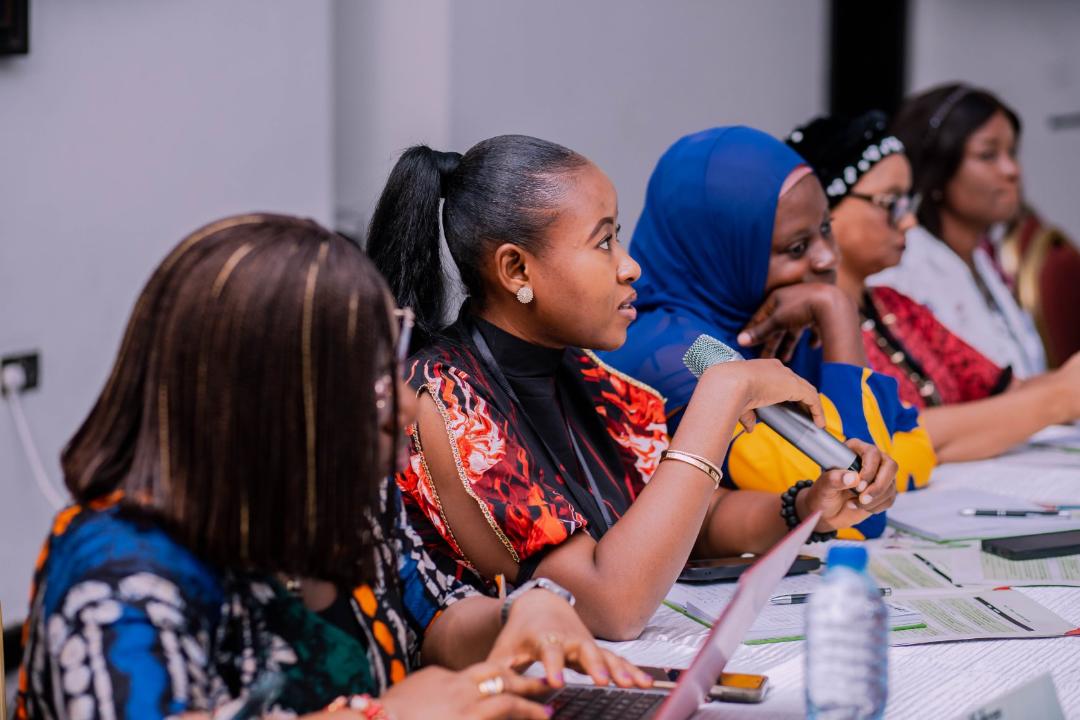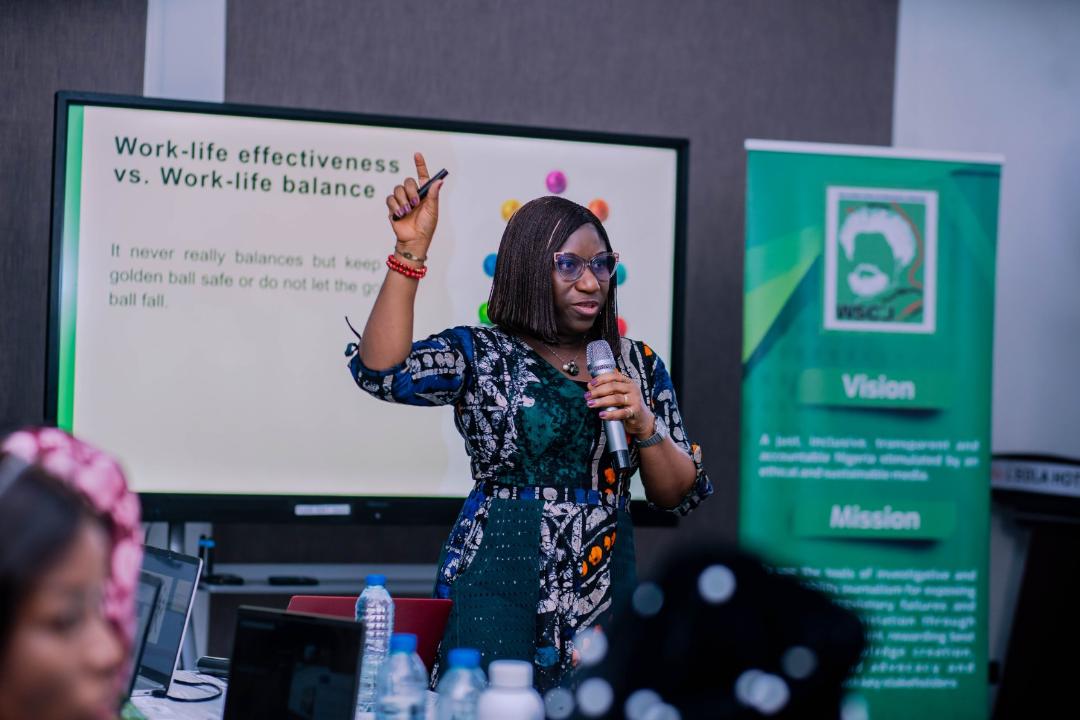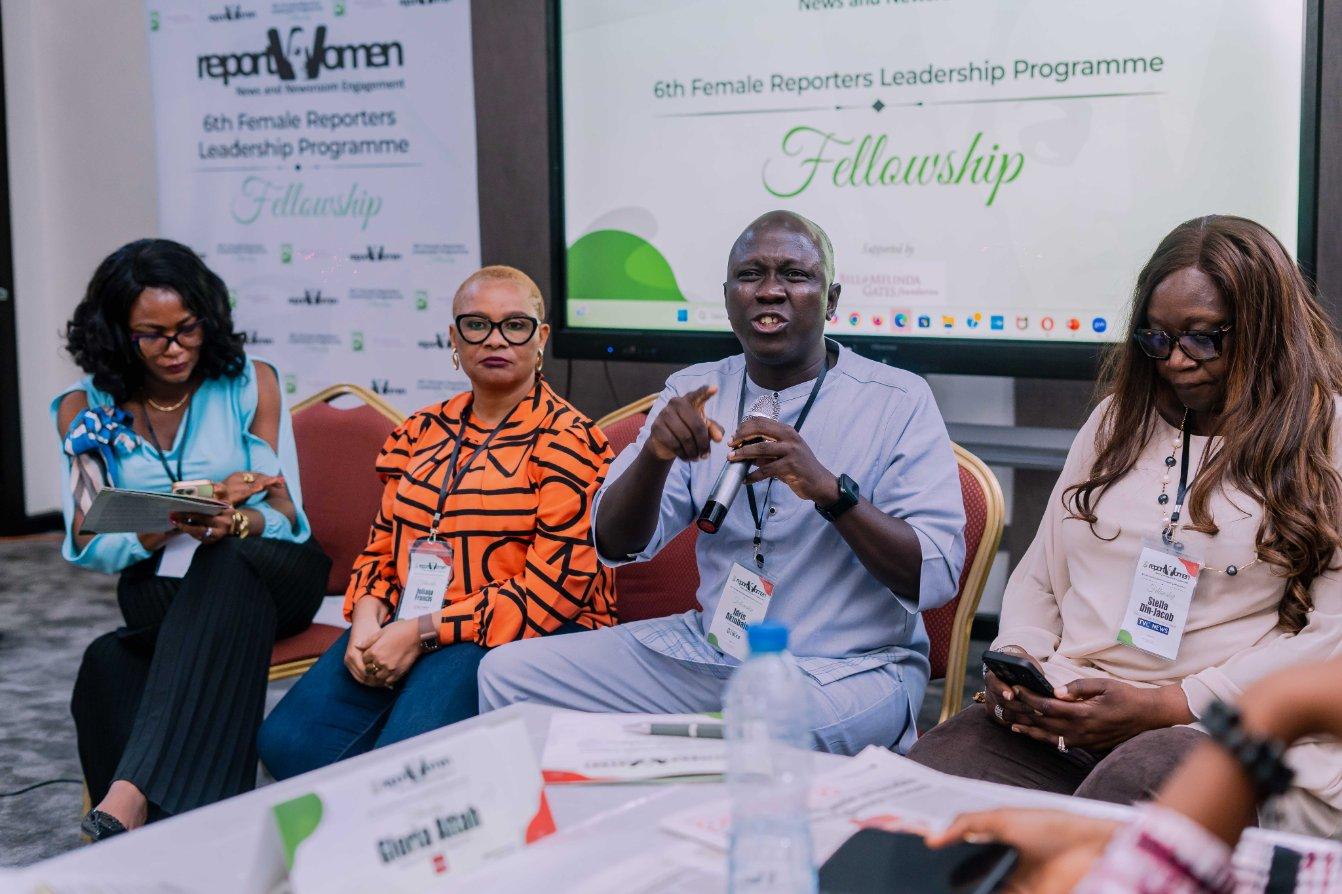Twelve female journalists selected for the sixth edition of the Report Women Fellowship (FRLP) by the Wole Soyinka Centre for Investigative Journalism (WSCIJ) have commenced the six-month programme with a three-day training on relevant skills to enhance their capacity and elevate women’s leadership in newsrooms and the society.
Key issues addressed by various facilitators at the three-day training in Lagos from April 2-4, 2025, included investigative and accountability journalism. Journalist safety, women’s rights, wellness and breaking stereotypes.
Setting the tone for the training, Executive Director and CEO of the WSCIJ, Mrs. Motunrayo Famuyiwa-Alaka, presented findings from the Centre’s investigative reports on women’s leadership in newsrooms, dating back to 2017.
The data revealed a persistent gap in decision-making roles occupied by women, reinforcing the relevance and urgency of the fellowship’s mission.
In his first presentation, the Managing Director of Premium Times Nigeria, Mr. Idris Aloma, outlined the four key roles of journalists: disseminator, public mobilizer, adversarial force, and watchdog.
Highlighting the digital transformation in media, Aloma stressed the enduring relevance of investigative and accountability journalism.
He defined investigative journalism as journalism driven by overwhelming public interest, in-depth and original research, and the ability to unearth hidden truths.
“Investigative journalism is fundamentally about demanding good governance,” Aloma said, adding that “the digital age won’t end journalism; it will reshape it. But truth and accuracy must never be sacrificed for speed.”
He also encouraged senior female journalists to mentor younger colleagues, helping them discover their strengths and refine their storytelling capabilities.
One of the participants, Jemilat Nasiru, expressed her excitement on X (formerly Twitter) on the first day, stating that she was super excited to be a participant and feel “unlocked a superpower!”

Day Two: Safety, Rights and Self-Care
Day two of the fellowship delved into critical topics such as journalist safety, women’s rights, and wellness.
Mr. Aloma spoke on safety protocols during investigations, noting that threats may arise at every stage of the reporting cycle, be they physical, digital, or psychosocial.
Deputy Vice-Chancellor of the University of Lagos, Professor Ayodele Atsenuwa, facilitated a session on women’s rights, stressing the need for consistent media coverage to push governments to meet their obligations.
“Laws don’t enforce themselves,” she said. “Media must continue to spotlight gaps, engage policymakers, and advocate for gender equality.”
Mrs Alaka also led an inspiring session on self-care, describing rest, exercise, therapy, and social connections as signs of strength, not weakness.
“Journalism is tough, especially for women,” she said. “But with clear priorities, structured planning, and firm boundaries, it’s possible to excel without losing oneself.”
The day also featured testimonials from past fellows who affirmed that the fellowship was a transformative experience in their careers.

Final Day: The RUSH Model and Breaking Stereotypes
On the third and final day, Mrs. Alaka unveiled her signature “RUSH” model, which stands for Report until Something Happens.
She urged journalists to understand that journalism exists within an ecosystem and that strategic collaboration can give stories a life beyond publication.
The three pillars of the RUSH model are:
- Media as a force for change
- The media’s convening power
- Leveraging technology and collaboration to sustain issues
The event closed with a thought-provoking session by Mrs. Stella Din-Jacob, Director of News and Editor-in-Chief of TVC Communications.
She spoke passionately on confronting newsroom stereotypes, ranging from gender and generational to cultural and industry biases.
“Cultivate awareness,” she urged. “Be an inclusive leader, diversify your storytelling, undergo bias training, and encourage open dialogue.”
She also offered practical steps for resolving newsroom conflict:
- Address issues early
- Listen actively
- Stay objective
- Involve neutral parties

The female journalists participating in the programme were selected from a competitive pool of 160 applicants across diverse media platforms in Nigeria.
According to the organizers, the core objective of the fellowship is to improve the leadership status of women in news, within newsrooms, and across broader societal structures.
Since its inception in 2014, the Report Women Fellowship has consistently empowered female reporters with the skills, confidence, and strategic tools to ascend to top-tier leadership positions within the media industry.
To date, the Wole Soyinka Centre for Investigative Journalism has trained over 500+ journalists through this initiative and continues to play a vital role in shaping a more inclusive and equitable media landscape in Nigeria.
READ ALSO:

